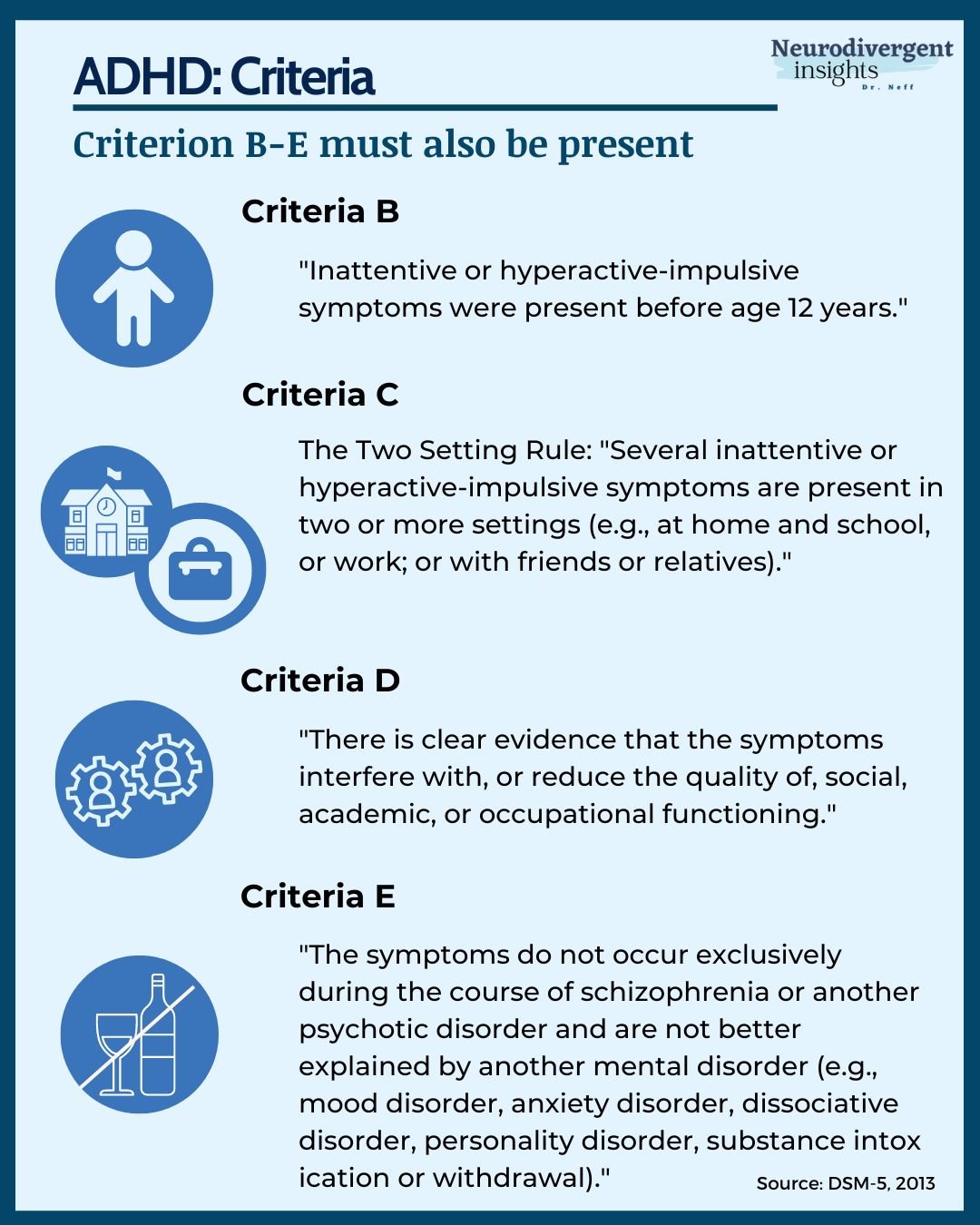Navigating An Adult ADHD Diagnosis: A Practical Guide

Table of Contents
Understanding Your Adult ADHD Diagnosis
The diagnostic process for adult ADHD typically involves a comprehensive evaluation by a mental health professional, such as a psychiatrist, psychologist, or clinical therapist. This process usually includes: a detailed interview about your symptoms, a review of your medical and developmental history, and the administration of standardized questionnaires and assessment tools. It's crucial to remember that self-diagnosis is unreliable; a proper professional evaluation is necessary for an accurate Adult ADHD diagnosis.
Adult ADHD manifests in various ways, primarily through inattentiveness, hyperactivity, and impulsivity. These symptoms aren't always as obvious in adults as they are in children. There are three main subtypes:
- Predominantly Inattentive Presentation: Characterized by difficulties with focus, organization, and sustained attention.
- Predominantly Hyperactive-Impulsive Presentation: Marked by restlessness, impulsivity, and difficulty staying still.
- Combined Presentation: A combination of inattentive and hyperactive-impulsive symptoms.
Examples of how these symptoms present in adult life include:
- Difficulty focusing on work tasks, leading to missed deadlines and decreased productivity.
- Impulsivity in spending habits, resulting in financial difficulties.
- Impulsivity in relationships, leading to conflict and damaged trust.
- Chronic lateness and disorganization.
Coping Strategies for Adult ADHD
Managing ADHD symptoms effectively requires a multifaceted approach incorporating various coping mechanisms and strategies. Effective strategies focus on improving organization, time management, and focus.
Time Management Techniques:
- Pomodoro Technique: Work in focused bursts (e.g., 25 minutes) followed by short breaks.
- Time Blocking: Schedule specific times for tasks in your calendar.
Organization Tools & Strategies:
- Digital Calendars (Google Calendar, Outlook): Schedule appointments, reminders, and deadlines.
- To-Do Lists (Todoist, Any.do): Prioritize tasks and track progress.
- Note-Taking Apps (Evernote, OneNote): Capture thoughts, ideas, and important information.
Tips for prioritizing tasks include using methods like the Eisenhower Matrix (urgent/important), and breaking down large tasks into smaller, more manageable steps. Strategies for improving focus include minimizing distractions, creating a dedicated workspace, and incorporating regular breaks. Mindfulness and meditation can also be incredibly beneficial in improving focus and reducing impulsivity.
Treatment Options for Adult ADHD
Treatment for adult ADHD typically involves a combination of medication and therapy.
Medication Options:
- Stimulants (methylphenidate, amphetamine): These medications increase dopamine and norepinephrine levels in the brain, improving focus and reducing impulsivity. Potential side effects can include insomnia, decreased appetite, and increased heart rate.
- Non-stimulants (atomoxetine, guanfacine): These medications work differently than stimulants but offer similar benefits. Side effects can vary.
Therapy Options:
- Cognitive Behavioral Therapy (CBT): Helps identify and change negative thought patterns and behaviors.
- Behavioral Therapy: Focuses on developing coping mechanisms and strategies for managing symptoms.
It’s crucial to consult a doctor to discuss potential side effects and to find the right medication and dosage for your individual needs. Therapy plays a critical role in developing coping skills and strategies that complement medication. A holistic approach that combines medication and therapy is often the most effective treatment for Adult ADHD.
Seeking Support and Resources for Adult ADHD
Navigating an Adult ADHD diagnosis is easier with a strong support system. Don't hesitate to reach out to family, friends, and support groups for understanding and encouragement.
Online Resources and Support Organizations:
- CHADD (Children and Adults with Attention-Deficit/Hyperactivity Disorder):
- ADDitude Magazine:
Advocating for yourself in the workplace or educational settings may require providing documentation of your diagnosis and discussing reasonable accommodations. Building a support network involves actively seeking out understanding individuals who can provide emotional support and practical assistance.
Successfully Navigating Your Adult ADHD Diagnosis
Understanding your Adult ADHD diagnosis, implementing effective coping strategies, exploring appropriate treatment options, and building a strong support system are all critical components of successful management. Remember, seeking professional help for an accurate diagnosis and treatment plan is paramount. Take control of your life by learning more about your Adult ADHD diagnosis today. Find a qualified professional and start your journey to better management. Don't let ADHD define you; manage it effectively and live your best life.

Featured Posts
-
 Solve Nyt Strands Game 393 March 31 Hints And Solutions
Apr 29, 2025
Solve Nyt Strands Game 393 March 31 Hints And Solutions
Apr 29, 2025 -
 Secret Service Investigation Concludes Cocaine Found At White House
Apr 29, 2025
Secret Service Investigation Concludes Cocaine Found At White House
Apr 29, 2025 -
 London Welcomes Jeff Goldblum Jurassic Park Stars Popular Appearance
Apr 29, 2025
London Welcomes Jeff Goldblum Jurassic Park Stars Popular Appearance
Apr 29, 2025 -
 Will Tremors Return To Netflix Exploring The Possibilities
Apr 29, 2025
Will Tremors Return To Netflix Exploring The Possibilities
Apr 29, 2025 -
 Louisville Residents Under Shelter In Place Order Reflecting On Past Tragedy
Apr 29, 2025
Louisville Residents Under Shelter In Place Order Reflecting On Past Tragedy
Apr 29, 2025
Latest Posts
-
 Celtics Magic Division Title Clinched With Dominant Performance
May 12, 2025
Celtics Magic Division Title Clinched With Dominant Performance
May 12, 2025 -
 Boston Celtics Clinch Division Blowout Victory
May 12, 2025
Boston Celtics Clinch Division Blowout Victory
May 12, 2025 -
 Two Unlikely Celtics Players Achieve 40 Point Games A Historic Night
May 12, 2025
Two Unlikely Celtics Players Achieve 40 Point Games A Historic Night
May 12, 2025 -
 Double 40 Point Game Unlikely Celtics Duo Dominate
May 12, 2025
Double 40 Point Game Unlikely Celtics Duo Dominate
May 12, 2025 -
 Payton Pritchard Crowned Nba Sixth Man Of The Week
May 12, 2025
Payton Pritchard Crowned Nba Sixth Man Of The Week
May 12, 2025
